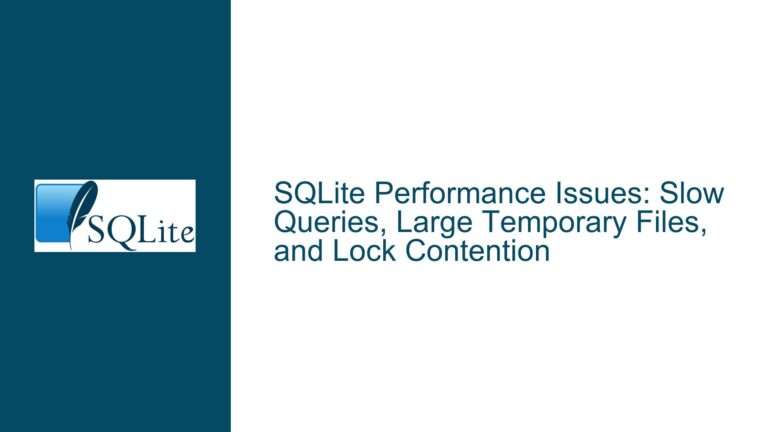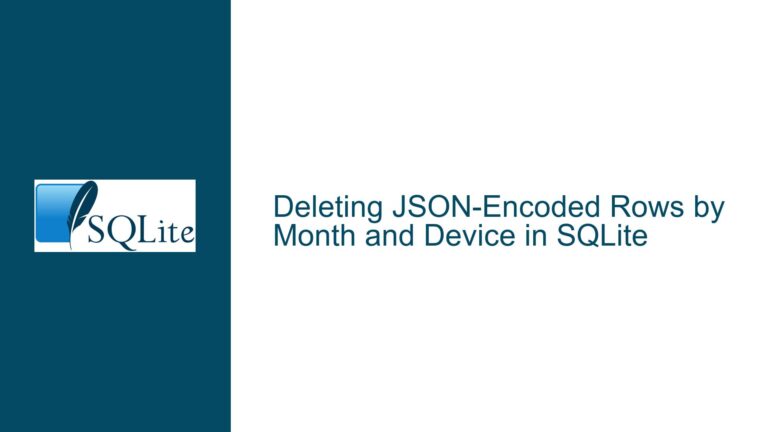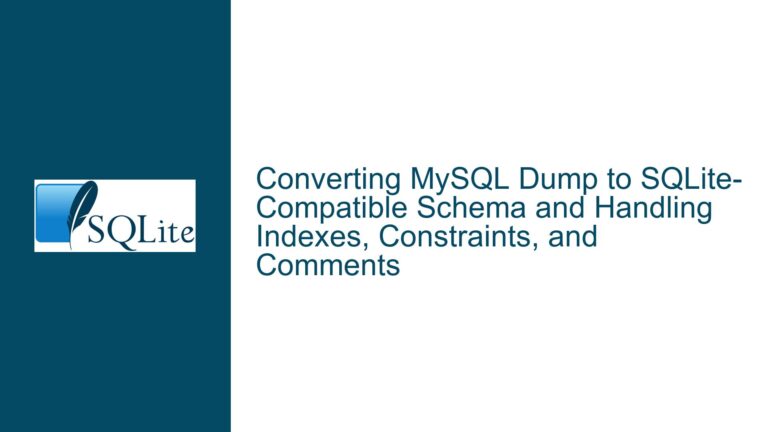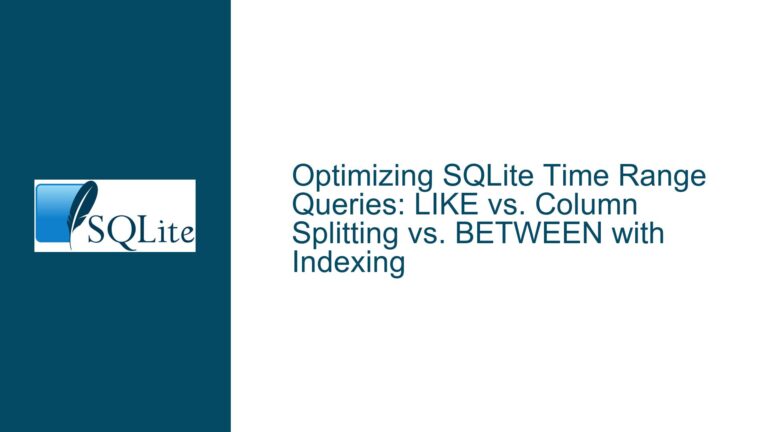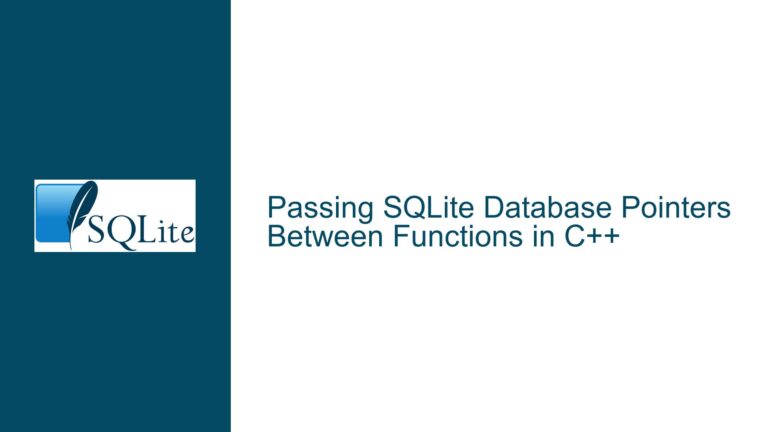SQLite Performance Issues: Slow Queries, Large Temporary Files, and Lock Contention
Understanding the Slow Query Performance and Large Temporary Files in SQLite The core issue revolves around SQLite queries running excessively slow, with API calls taking up to a minute to complete. This performance bottleneck is accompanied by the creation of large temporary files (approximately 100MB each) named sqlite3tmp*. Additionally, threads are frequently stuck waiting on…
